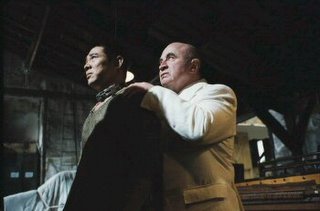News values
The sun
Replica bomb filmed for court
http://www.thesun.co.uk/article/0,,2-2007110696,00.html
Threshold: Terrorism is a growing concern in the uk and this story is big enough to get onto the news.
Meaningfulness: This would be a meningful artical for people as they would be interested in such a big thing that could effect them.
Negativity: This is a negative type of news.
Daily Mail
BBC journalist kidnapped in Gaza
http://www.dailymail.co.uk/pages/live/articles/news/worldnews.html?in_article_id=441782&in_page_id=1811
Negativity: This is obviously a negative artical as a man has been kidnapped.
Meaningfulness: The audience is most likely to feel this is meaningful as this journalist as been put in this situation through his job, and seems innocent.
Continuity: This is most likely to continue until the man is found.
The sun
Replica bomb filmed for court
http://www.thesun.co.uk/article/0,,2-2007110696,00.html
Threshold: Terrorism is a growing concern in the uk and this story is big enough to get onto the news.
Meaningfulness: This would be a meningful artical for people as they would be interested in such a big thing that could effect them.
Negativity: This is a negative type of news.
Daily Mail
BBC journalist kidnapped in Gaza
http://www.dailymail.co.uk/pages/live/articles/news/worldnews.html?in_article_id=441782&in_page_id=1811
Negativity: This is obviously a negative artical as a man has been kidnapped.
Meaningfulness: The audience is most likely to feel this is meaningful as this journalist as been put in this situation through his job, and seems innocent.
Continuity: This is most likely to continue until the man is found.



